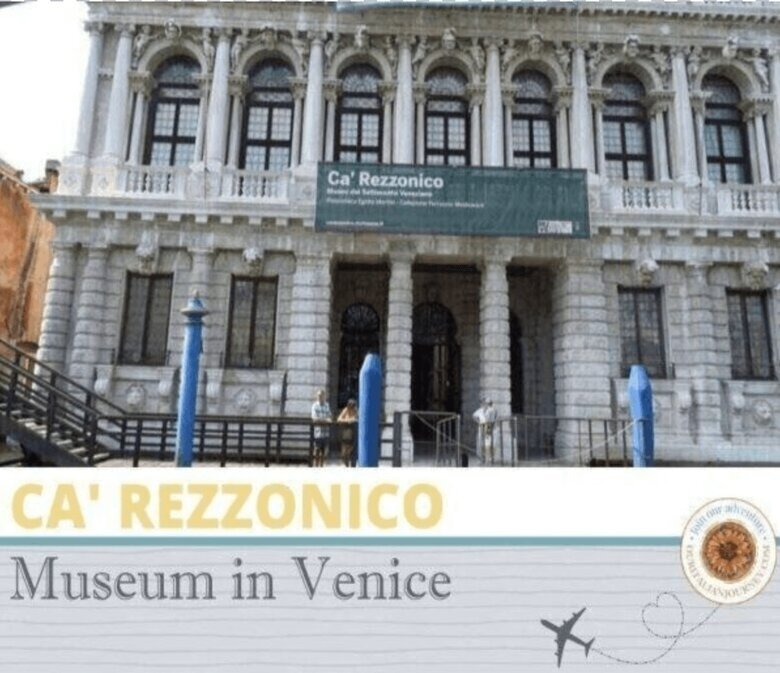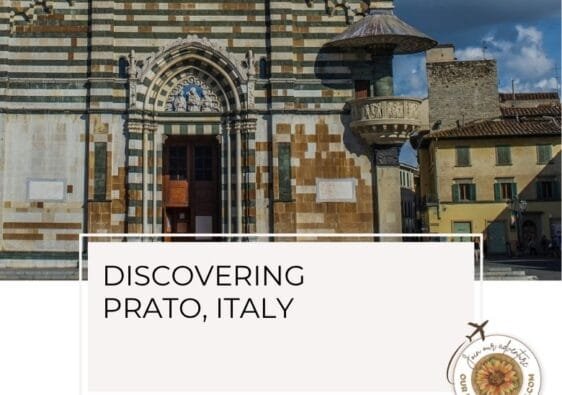Discover the splendor of Ca’ Rezzonico Palace
Ca’ Rezzonico Palace Venice, an iconic “palazzo” is located on the Grand Canal in the Dorsoduro district of Venice, Italy. It’s a treasure trove of 18th-century Venetian culture and history. This magnificent palace, now a public museum, offers visitors an unparalleled glimpse into the luxury of the Venetian Republic’s final days.
This post contains affiliate links that help keep this website running. By purchasing through our links, we make a small commission at no extra charge to you. Thank you for your support!
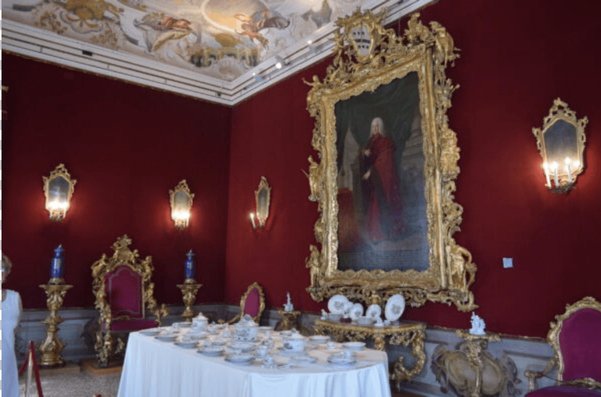
The Grand Canal’s Best Kept Secret: Ca’ Rezzonico
Venice is full of tourist traps, but the Ca’ Rezzonico is a hidden gem waiting to be discovered. This stunning palace offers a welcome escape from the crowds and a chance to truly experience Venetian history.
Wander through the opulent halls and imagine yourself as a Venetian socialite. On a side note… (giggles) I always wanted to wear one of those dresses with the huge crinoline and make a swishing sound as I walked. Admire the incredible collection of art, furniture, and everyday objects that tell the tale of a bygone era.
Fun Fact: Did you know that Ca’ Rezzonico has appeared in several films, including “Casanova” and “The Wings of the Dove”? It’s no wonder, given its cinematic beauty!
A Bit of History
The palace passed from hand to hand as families grew wealthy and then fell from power. It’s a micro-history of Venice itself. The name means ‘house of the Rezzonico family’ but this isn’t even half the story. In 1649, Filippo Bon, head of one of Venice’s most important families, commissioned a palace to be built at the junction of the Grand Canal. It was a prime site, occupied by two houses owned by the Bons, and the new building was to be a concrete expression of the family’s wealth and status. The architect was Baldassare Longhena, the master of the Venetian Baroque style.

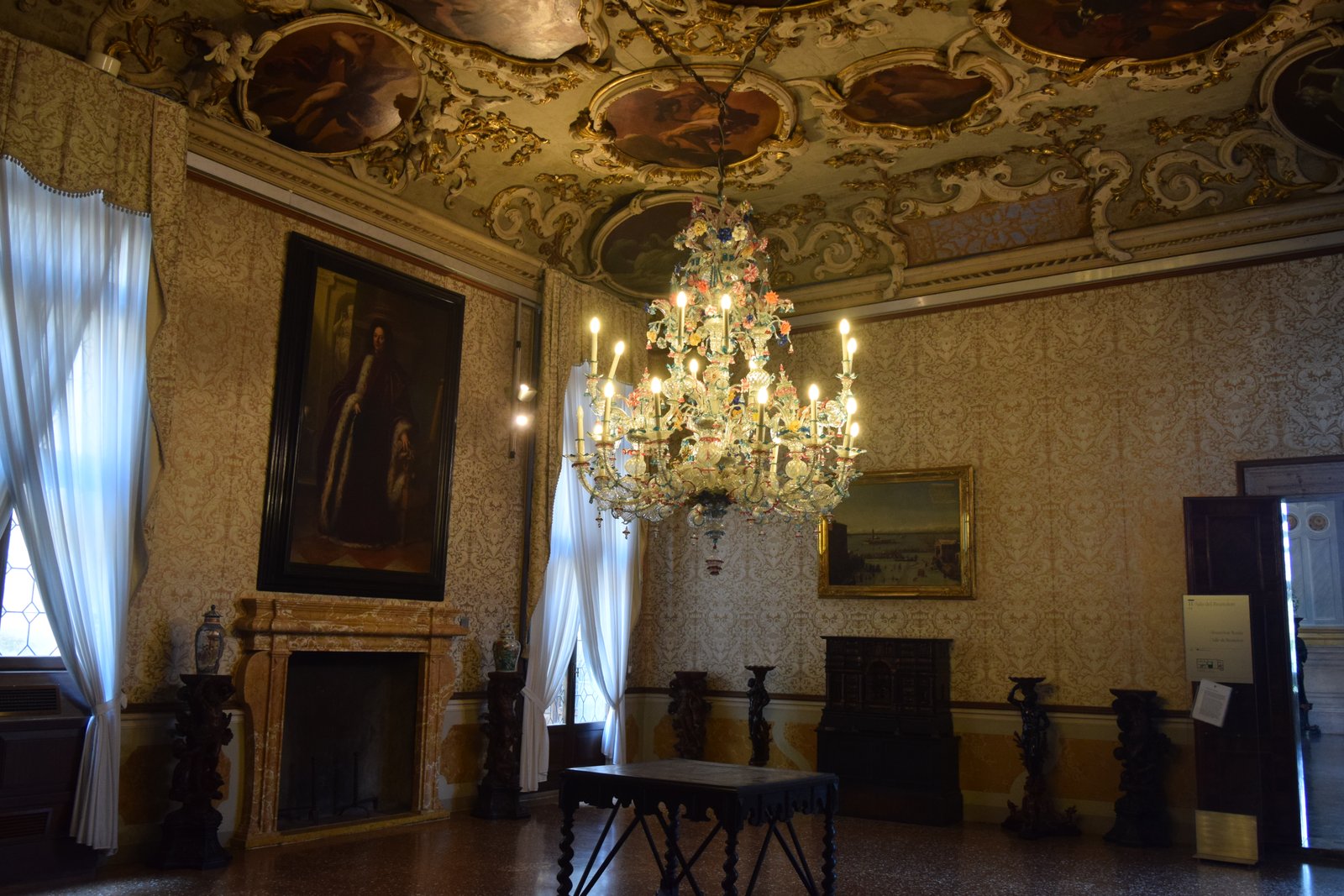
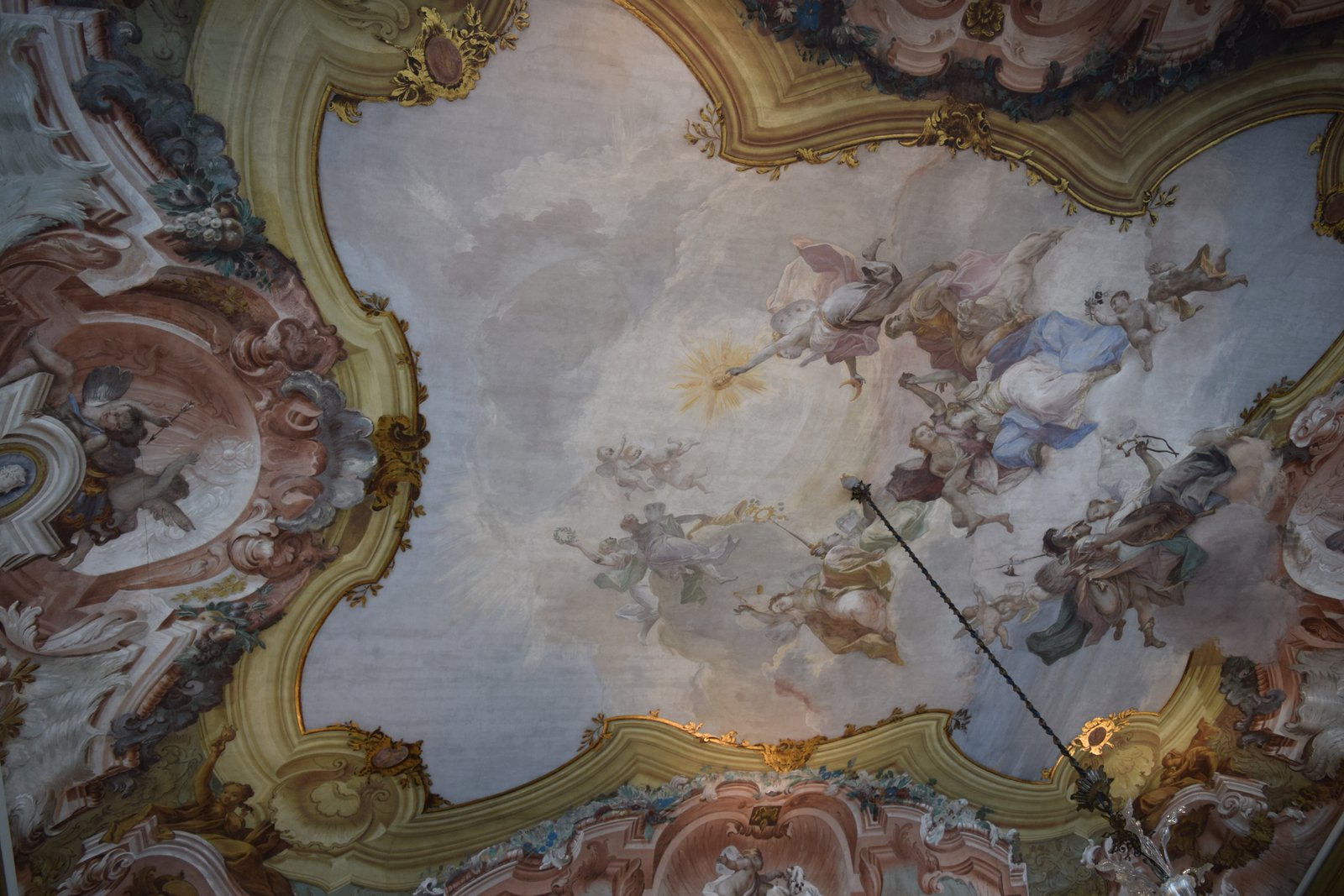
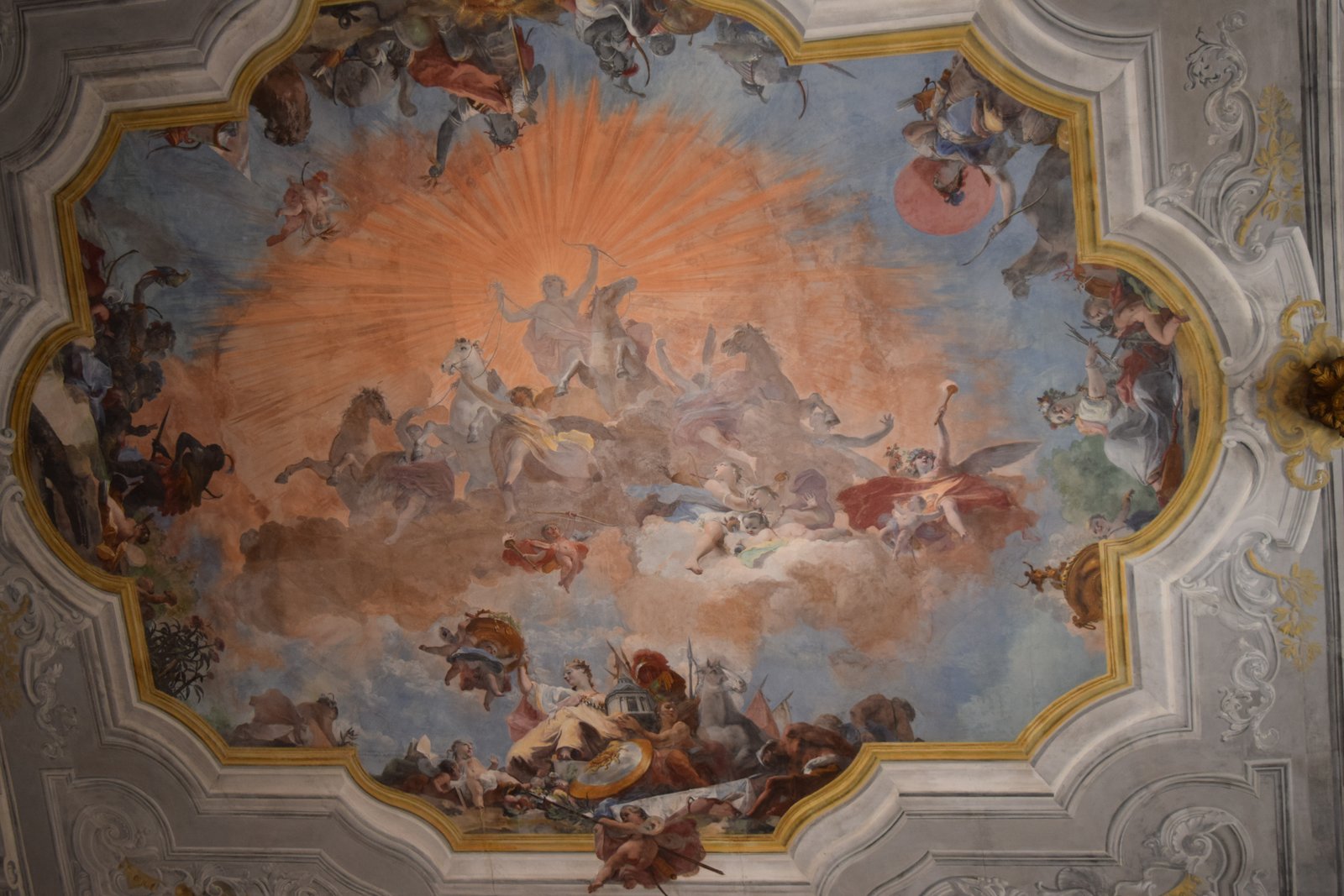
The Rezzonico line died out in 1810. The palace then had other well-known tenants. The great artist Whistler stayed in the palace from 1879–1880. After Elizabeth Barrett Browning died, her son Pen bought the palace in 1888 and moved in with his father, poet Robert Browning. It’s been open to the public as a museum since 1936.
A Glimpse into 18th-Century Venetian Life
The palace’s lavish interiors are meticulously preserved, providing a window into what life was like for Venice’s aristocracy. The layout of the museum presents a succession of rooms. The ground floor highlights the Baroque style between courtyards and porches, while the three upper floors offer an endless parade of works of art, frescos, and everyday objects arranged as if someone was still living there. Paintings, furniture, and frescoes lost or sold over time have been supplemented with material from other contemporary palaces of Venice or purchased on the antique market.
Art and Artifacts at Ca’ Rezzonico Palace Venice
The museum’s collection is a testament to the rich artistic heritage of Venice. Among the highlights are works by some of the most celebrated artists of the 18th century. Giovanni Battista Tiepolo, known for his vibrant frescoes and dynamic compositions, has several masterpieces on display. Marvel at the detailed scenes captured by Francesco Guardi, whose paintings offer a picturesque view of Venice’s daily life. Additionally, the works of Pietro Longhi provide a fascinating glimpse into the social customs and domestic scenes of the time.
In addition to these paintings, Ca’ Rezzonico Palace Venice is home to an array of artifacts. The collection includes exquisite furniture pieces that showcase the craftsmanship of the period, and richly colored tapestries that once adorned the walls of noble homes. One particularly intriguing exhibit is an authentic, old-school private gondola. This beautifully preserved vessel adds a touch of authenticity and serves as a reminder of Venice’s long-standing tradition of gondola travel.
Architectural Splendor and Historical Significance
Ca’ Rezzonico Palace Venice itself is an architectural masterpiece. Designed by the renowned architect Baldassare Longhena and completed by Giorgio Massari, the palace features a harmonious blend of Baroque and Rococo styles. The façade, with its elegant arched windows and decorative stonework, is a striking sight from the Grand Canal, while the interior boasts grand staircases, opulent ballrooms, and serene courtyards.
Experience Ca’ Rezzonico Palace Venice Today
Today, Ca’ Rezzonico Palace Venice stands as a testament to Venice’s rich cultural and artistic heritage. It’s not just a museum; it’s a journey back in time. The museum offers various tours and educational programs that cater to both art enthusiasts and casual visitors. Whether you’re interested in the fine details of 18th-century Venetian art or wish to immerse yourself in the grandeur of a bygone era, Ca’ Rezzonico Palace provides a unique and enriching experience.
Tips for your visit:
- The best time to visit is early morning to avoid the crowds and have a more peaceful experience
- Look for the secret garden – a peaceful oasis hidden away in the heart of the palace
- Don’t miss the grand ballroom with its stunning chandeliers and intricate stucco work. You can almost hear the music and laughter from the grand parties that once took place here.
- Take a guided tour to unlock the palace’s hidden stories and secrets
Here’s what makes Ca’ Rezzonico special:
- Explore the grand halls, private apartments, and even the attic, each room meticulously decorated to reflect Venetian style at its peak.
- This palace is an art lover’s paradise. View masterpieces by Canaletto, Tiepolo, and Longhi. Keep an eye out for quirky everyday scenes alongside grand historical portraits.
- No visit to Venice is complete without epic canal views, and Ca’ Rezzonico delivers. Take a moment to soak up the Grand Canal panorama from the balcony – bellissimo!
Travel tips:
- Check out the museum’s website for ticket information and consider a guided tour to unlock the palace’s hidden stories.
- How to get there? Hop on a vaporetto (water bus) to the Ca’ Rezzonico stop. It’s a great way to see the canal and get to the museum.
- After your visit, wander down the charming Dorsoduro district for a spritz (Venetian aperitivo) and soak up the local atmosphere.

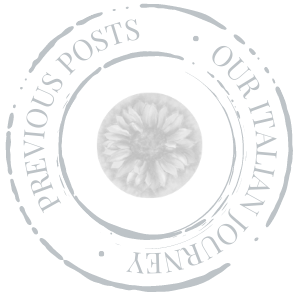
Editor’s Note: This post was initially published in October 11, 2018 and was recently updated in March 2026 for accuracy and additional information.

